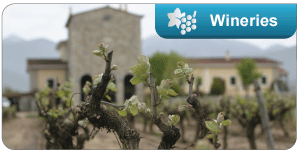Why wines of alternative practices?
The answer to the question, “why wines of alternative practices?” is not simple and requires a brief historical background. Vitis vinifera, the common grape vine, is a species that first appeared near the Black and Caspian Seas and was then systematically cultivated in Mesopotamia. In the Aegean Sea, vitis vinifera played an integral role in Greek civilization. Ancient Greece was famous for being a culture of wine; they produced and traded many of the infamous sweet wines of antiquity (versions of these naturally sweet wines can be still be found today on Santorini, Samos, Crete, and other regions in Greece). The Greeks had taken viniculture to a new level, but it wasn’t until the rise of the Roman Empire, that viniculture made its presence known throughout wider areas of Europe. By Middle and Modern European times, wine became the interest of feudal lords, powerful nobles, and monks.
During the Industrial Revolution, farmers became obsessed with the idea of mass production, no matter the costs. Producing such high yields of grapes meant altering the natural process to include more inorganic and synthetic strategies. As a result, many diseases began to plague the grape vine and other plants such as powdery/ downy mildew and phylloxera. From the mid 19th century to the beginning of 20th of century, these diseases (combined with other negative results of over production) wreaked havoc on the farms of Europe. Authorities reacted by placing tight regulations on European viticulturists—creating a controlled system of wine production. These regulations soon spread, and to this day they continue to disrupt the preferred practices of many viticulturists and wine growers around the world. An increasing number of people have joined their voices in exercising criticism against these regulations and are arguing instead for a return to the natural strategies of wine production which stress a fundamental respect for nature. This is why wines of alternative practices have been produced in Greece and around the world for many years. Hopefully small movements like this will inspire a larger and more conscious relationship between man and nature.



